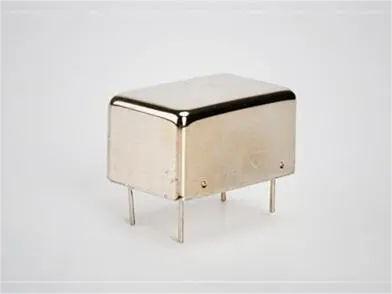Quartz plate sand plays a very important role in semiconductor manufacturing,
and its key role is mainly reflected in the following aspects:

1. Mask substrate in photolithography process
-In the semiconductor manufacturing process, photolithography is used to
transfer circuit patterns onto silicon wafers. Quartz plate sand is commonly
used in the production of photolithography mask substrates due to its excellent
optical properties and high temperature resistance. The mask substrate is a key
component in photolithography technology, which can ensure high-precision
pattern transfer.
-High transparency: Quartz board sand has excellent transparency and can
maintain a low absorption rate under ultraviolet light irradiation, which is
very important for high-precision lithography. The high transparency of the mask
substrate helps ensure the clarity and accuracy of the photolithography
pattern.
-High temperature resistance: Semiconductor manufacturing processes often
require high-temperature environments for processing. Quartz plate sand has
extremely strong high temperature resistance, which can maintain structural
stability at high temperatures, prevent deformation or damage, and ensure the
long-term use of mask substrates.
2. Fiber optic and sensor substrates
-Quartz plate sand is also used as a substrate for fiber optic sensors in the
semiconductor field. Fiber optic sensors are widely used for monitoring
environmental parameters such as temperature, pressure, and humidity in
semiconductor production. Quartz material, due to its excellent optical
properties and high temperature resistance, can provide stable signal
transmission and reliability in high-precision sensor applications.
-In fiber optic sensors, quartz sand can be used as the basic material for
preparing fiber optic or sensor components, ensuring high-precision data
acquisition.
3. High purity quartz material is used for semiconductor equipment
-In semiconductor production, high-purity quartz is required as a component
of various equipment, such as reaction furnaces, annealing furnaces, chemical
vapor deposition (CVD) furnaces, etc. These devices are used for processing in
high-temperature environments, and quartz materials can effectively withstand
high temperatures, chemical corrosion, and mechanical stress.
-Quartz sand is refined and processed into high-purity quartz glass or quartz
plates, which are used as key equipment and reactors in semiconductor production
lines. These quartz devices can improve the accuracy and efficiency of
semiconductor manufacturing, ensuring product quality.
4. Cleaning and surface treatment
-In semiconductor manufacturing, cleaning and surface treatment of silicon
wafers are key steps to ensure product quality. Quartz sand is commonly used in
the manufacturing of cleaning equipment in semiconductor production, especially
for high-precision chemical mechanical polishing (CMP) processes.
-During the CMP process, the grinding effect of quartz sand helps to remove
impurities and oxide layers from the surface of silicon wafers, achieving
extremely high flatness and smoothness, thereby improving the performance of the
chip.
5. Wafer cutting and polishing
-Quartz sand can be used as a polishing agent and cutting tool in
semiconductor manufacturing. High purity quartz sand can be used for fine
cutting of wafers, ensuring the accuracy of the cutting process and avoiding
damage to the wafers.
-In the semiconductor production process, quartz sand, as an efficient
grinding material, can ensure finer surface treatment during the polishing
process of the wafer surface, reduce the influence of impurities, and improve
the performance of semiconductor devices.
6. Gas treatment and purification
-Chemical gases such as hydrogen and fluorinated gases are extensively used
in the semiconductor manufacturing process, which can easily react with other
substances at high temperatures, producing impurities or harmful substances. The
chemical resistance of quartz plate sand makes it a key material in gas
treatment and purification equipment.
-Quartz sand is used in gas processing systems to purify gases or as a
catalyst carrier, ensuring a clean semiconductor production environment and
reducing the impact of pollution on product quality.
7. Construction of ultra clean environment
-Semiconductor manufacturing has extremely high requirements for
environmental cleanliness. Quartz board sand is often used to manufacture
building materials and equipment for cleanrooms due to its inherent cleanliness
and low impurity content.
-Quartz board sand, as a raw material for clean room walls, floors, or
partitions, can effectively reduce the accumulation of dust and impurities,
maintain an ultra clean environment, and ensure quality control in the
semiconductor production process.
8. Cross application of photovoltaic industry and semiconductor
-The photovoltaic industry and the semiconductor industry have intersections
in certain technologies and materials. The high purity and stability of quartz
plate sand make it important for the manufacturing of solar cells, especially in
the surface treatment and high-temperature annealing processes of photovoltaic
cells. These technologies have many similarities with semiconductor
manufacturing technology, so the application of quartz plate sand has a certain
overlap between the two.
summary
Quartz plate sand plays a crucial role in semiconductor manufacturing,
especially in various processes such as photolithography, equipment components,
cleaning, cutting, and surface treatment. Its excellent optical properties, high
temperature resistance, corrosion resistance, and purity make it an
indispensable key material in semiconductor manufacturing, helping to improve
production efficiency, reduce defect rates, and ensure high-quality final
products. With the continuous advancement of semiconductor technology, the
application scope and importance of quartz plate sand are expected to further
expand.